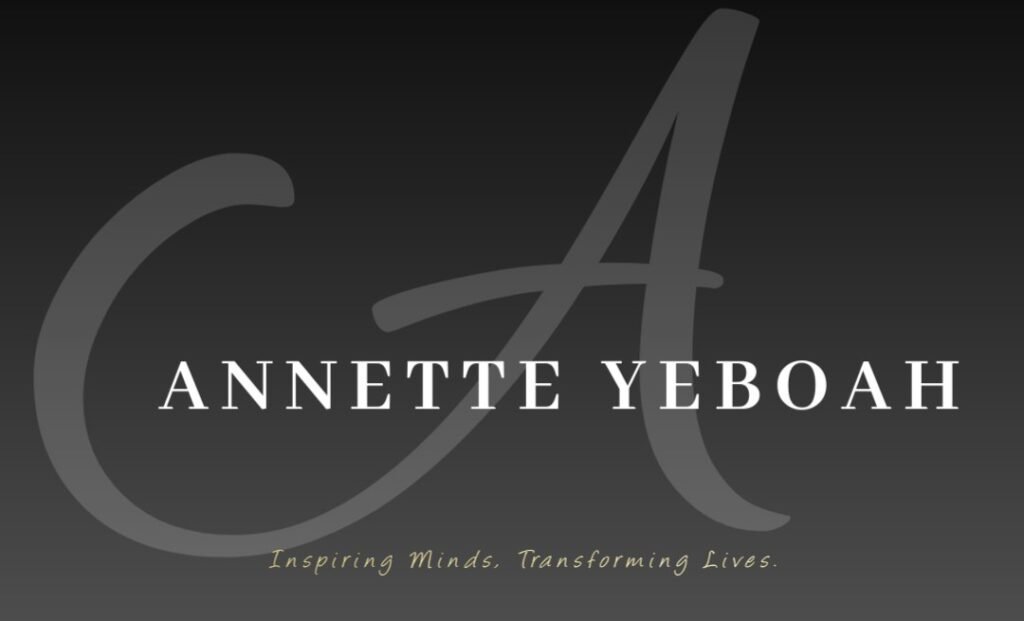Feeling Stuck Between Choices?
Stuck between choices? You’re not alone. In moments of uncertainty, decision-making clarity can feel out of reach—but it’s possible. Find clarity, courage, and peace to move forward—no matter the pressure or fear around you.
Ever stood in front of a food stuff shop in Accra, trying to pick between three nearly identical yams? You ask the seller, “Which one is good?” and she says, “All of them are.”
Now what?
That same feeling—uncertainty, hesitation, pressure—shows up in life’s bigger decisions too.
Whether it is choosing a career path, deciding to relocate, or figuring out if a relationship is meant to last, the weight of making the right choice can feel crushing.
And in a world full of options, advice, and noise, it is easy to get stuck. Frozen. You keep asking yourself, what if I choose wrong? What if I regret it? What if I disappoint someone or myself?
This post isn’t about quick fixes. It’s about learning how to make peace with the process of choosing. It’s about finding clarity not by removing all uncertainty, but by grounding yourself in what truly matters.
Let’s take our time with this.
Why Too Many Options Can Feel Like a Trap
Understanding Choice Overload
We like to think having choices is always a good thing. And in many ways, it is. My mother used to say, “If you only have one pot, you won’t waste time thinking about which one to use.”
But add five more pots and now you’re debating which is best, which one will last, which one might crack.
That’s what psychologists call choice overload. More isn’t always better. Sometimes, it’s exhausting.
The Pressure of Perfection
The more choices we have, the more pressure we feel to choose perfectly. And that pressure leads to a fear of regret: What if the other option would have made me happier?
In Ghana, we feel this in our own way. You grow up with expectations from family, church, community. You are not just choosing for yourself. You are choosing in the shadow of what others might say or think.
That is not a small thing. But it’s not a reason to stay stuck either.
Too many options can blur your sense of purpose, but narrowing them helps restore decision-making clarity.
Clarity Begins with Knowing What You Value
Not Confused—Just Unclear on Values
Here’s the truth: most of the time, we’re not actually confused about the options. We’re unclear about what we truly value.
When you know what matters most to you, decisions become less about choosing the “right” path and more about choosing the path that fits your life.
Example: Choosing Between Two Job Offers
Say you’re offered a job in Kumasi with a good salary, but it means being far from your parents in Cape Coast. Another offer comes in Accra—it pays less, but you’d be closer to family and your church.
Now, if you value financial growth above all else, the Kumasi job might make sense. But if your heart leans toward connection and presence, maybe Accra is the better fit.
There’s no universal right answer. But when you know your values—things like peace, freedom, family, faith—you can align your choices accordingly.
Try This Exercise
Write down your top three values. Not the ones you think should be important—but the ones that genuinely guide how you want to live.
Then look at the decision in front of you. Which option honors those values more?
That’s where decision-making clarity begins.
You Don’t Need 100% Certainty to Move Forward
Letting Go of the Myth of Certainty
One of the biggest myths we carry—especially those of us raised to respect order, elders, and “not making mistakes”—is the idea that we need complete certainty before making a move.
But here’s the thing: most of life doesn’t work like that.
You don’t always get a sign. You won’t always “feel peace” in advance. Sometimes, clarity shows up after you take a step, not before.
Faith in Process, Not Just Outcomes
It’s like walking through morning fog in the mountains. You don’t see the whole road. But you can see just far enough to take the next step. And that’s often all you need.
There’s a kind of faith in this—not just faith in God, but faith in process. That even if you don’t have the full picture now, you’re still moving in the right direction.
Sometimes, especially in our Ghanaian culture, we’re taught to wait for confirmation from pastors, parents, or dreams. And while those can be helpful, they’re not a replacement for your own inner conviction. You’re allowed to move even if you don’t feel 100% sure.
That doesn’t mean being careless. It means being brave. Even a small step can move you toward decision-making clarity, especially when paired with faith and intention.
Accepting Imperfection Is Part of Growth
What If Failure Isn’t the Enemy?
Let’s be honest: the fear of choosing wrong isn’t really about the decision. It’s about what we’ll think of ourselves if it goes badly.
“I should’ve known better.”
“Look at how everyone else is doing fine.”
“I’ve failed.”
But what if failure isn’t the enemy? What if it’s just part of how we grow?
The Wisdom of Experience
Every wise person you know—your favorite preacher, a respected elder, that friend who seems to always “get it”—has made decisions that didn’t turn out the way they expected. The difference isn’t that they chose perfectly. It’s that they kept learning.
In Ghana, we sometimes say, “Experience is the best teacher.” And while no one wants to learn the hard way, sometimes that’s the only way we grow stronger.
You might take a job and realize it’s not the right fit. You might say yes to something and later need to pivot. That’s not failure. That’s life.
The real mistake isn’t choosing wrong. It’s believing that one wrong turn defines you forever.
A Few Practical Steps to Build Decision Confidence
- Narrow your options
If you’re torn between five choices, try to reduce them to two or three serious ones. Not every option deserves equal energy. - Step away from it
Take a walk. Pray. Do something ordinary like sweeping or cooking. Sometimes, your mind just needs space to untangle itself. - Write, don’t just think
Put your thoughts on paper. Ask yourself: What am I really afraid of? What do I already know deep down? - Talk to someone—but not too many people
Find one or two wise, honest voices. The more opinions you collect, the more confused you might get. - Ask: What will I wish I had done five years from now?
It’s a powerful question. It removes the pressure of now and makes you think long-term. - Choose, and then commit
Once you make the decision, stop second-guessing. Don’t keep looking back like Lot’s wife. Trust that you made the best choice with what you knew at the time.
These steps are simple but powerful ways to build decision-making clarity in your everyday life.
The Next Right Step
Trusting your choices doesn’t mean you’ll always feel strong or certain. It means you’re willing to take the next right step, even if it’s small. Even if your hands are shaking.
In our part of the world, there’s often pressure to be flawless, to never stumble. But what people admire most isn’t perfection. It’s courage.
So, whether you’re choosing a job, a direction, a new chapter in your life—remember: you don’t need all the answers today. You just need enough trust to take one faithful step.
And if that step leads you somewhere unexpected, you’ll adjust. You’ll learn. You’ll grow.
Because life isn’t about choosing perfectly.
It’s about choosing faithfully and showing up for the journey that follows. With every choice rooted in intention, decision-making clarity becomes less about perfection and more about progress.
FAQ
What does it mean to “trust your choices”?
Trusting your choices means believing that your decisions are valid even when the outcome isn’t guaranteed. It’s about making thoughtful decisions based on your values, and not constantly second-guessing yourself afterward.
How do I make good decisions when I have too many options?
Start by narrowing your choices and identifying what truly matters to you. Focus on your core values, not just what looks good on the surface. Too many options can cause mental overload, but clarity comes when you ask: Which path aligns best with the kind of life I want?
Is it okay to make a decision even if I’m not 100% sure?
Yes, most good decisions come with a little uncertainty. You rarely get complete clarity before moving forward. Instead of waiting for perfect certainty, trust that you can learn and adjust along the way. That’s how real confidence is built.





